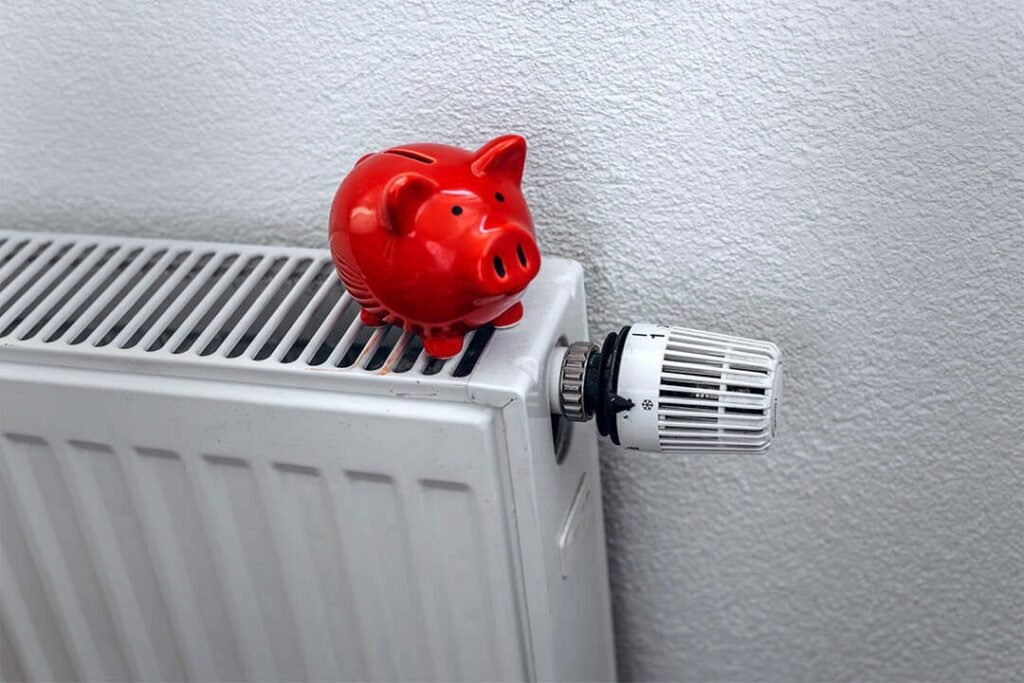Exploring the necessary measures for heaters to maintain warm in superior temperatures not only poses certain different difficulties for seniors. Heating costs are a terrible burden for anybody, not to mention, people with steady and limited incomes. Luckily the government schemes such as the First Time Central Heating Grant support elderly people and families with low income to heat homes without causing them much of financial stress.
In this blog, you will learn how seniors can get central heating grants, all the necessary information about the grants and what advantages they can have.
What is the First Time Central Heating Grant?
The First Time Central Heating Grant is an aspect of the UK government’s Energy Company Obligation or the ECO for short. This scheme is aimed at providing first time central heating installation for households.
The grant impacts the installation of efficient heating systems as the energy prices decrease and the houses turn more comfortable.
Why is Heating Assistance Important for Seniors?
1. Health Risks
Hypothermia, respiratory ailments, cardiovascular illnesses, and other diseases linked with out in the cold are expected outcomes of living in cold homes. It is vulnerable for seniors that the elderly are those most at risk from severe cases of the disease.
2. Rising Energy Costs
rates for heating have gone up significantly. A grant brings a lot of much-needed cash aid.
3. Improved Quality of Life
A warm home supplements comfort and helps the elderly spend their retirement age in comfort.
Eligibility Criteria for the First Time Central Heating Grant
To qualify for the grant, applicants must meet specific requirements:
1. Homeownership or Rental Status
- Must own the property or rent privately.
- Landlords can also apply on behalf of their tenants.
2. No Existing Central Heating System
The property should not have had a central heating system before. This includes properties using:
- Electric heaters.
- Open fires.
- Gas room heaters.
3. Income and Benefits
Applicants should receive one of the following:
- Pension Credit.
- Universal Credit.
- Housing Benefit.
- Income Support.
4. EPC Rating
Properties with low Energy Performance Certificate (EPC) ratings (E, F, or G) are prioritized.
How Does the Grant Process Work?
The process to apply for the First Time Central Heating Grant is simple:
Step 1: Check Eligibility
Use online tools or consult with an energy provider to verify if you meet the requirements.
Step 2: Arrange a Survey
A qualified assessor will inspect your property to ensure it qualifies for central heating installation.
Step 3: Grant Approval
Once approved, funding is allocated for the installation.
Step 4: Installation
Professional installers set up the heating system, ensuring compliance with safety and efficiency standards.
Benefits of the First Time Central Heating Grant
1. Lower Energy Bills
Central heating systems are more efficient than standalone heaters, saving money on energy bills.
2. Improved Home Comfort
Central heating provides consistent warmth throughout the home, enhancing overall comfort.
3. Increased Property Value
Installing central heating boosts a property’s value and appeal, particularly in the rental market.
4. Health Benefits
A warmer home reduces the risk of cold-related illnesses.
Other Heating Assistance Options for Seniors
1. Winter Fuel Payment
A tax-free payment to help seniors cover heating costs during the winter months.
- Eligibility: Available to those born on or before a certain date (varies annually).
- Amount: Up to £300 depending on age and circumstances.
2. Cold Weather Payment
A payment made during extended periods of cold weather (below 0°C for seven days).
- Eligibility: Available to low-income households receiving certain benefits.
- Amount: £25 for each seven-day period of severe cold.
3. Warm Home Discount
A one-off discount on energy bills for those struggling to pay their heating costs.
- Eligibility: Available to pensioners and low-income households.
- Amount: Around £150 (varies).
4. Home Improvement Grants
Local councils often provide grants for home improvements like insulation and energy-efficient windows.
How Central Heating Enhances Energy Efficiency
Central heating systems use modern technology to heat homes more effectively. Features include:
1. Thermostatic Controls
Allow users to set specific temperatures for different rooms.
2. High-Efficiency Boilers
Condensing boilers reduce energy waste and save on fuel costs.
3. Insulation Pairing
When paired with proper insulation, central heating reduces heat loss significantly.
How to Maximize Energy Efficiency After Installation
To get the most out of your new central heating system:
1. Insulate Your Home
Proper insulation reduces heat loss through walls, roofs, and windows.
2. Use Smart Thermostats
Smart thermostats allow you to control heating remotely, saving energy.
3. Seal Drafts
Use draft excluders for doors and windows to retain heat.
4. Maintain the System
Schedule regular boiler maintenance to ensure optimal performance.
Challenges and Solutions
1. Limited Awareness
Many seniors are unaware of the grant’s existence.
- Solution: Spread information through community centers and local councils.
2. Eligibility Barriers
Some seniors may not meet the strict criteria.
- Solution: Explore alternative grants and benefits.
Future Developments in Heating Assistance
The government continues to invest in schemes to support vulnerable households. Upcoming changes may include:
- Expanding eligibility criteria for the First Time Central Heating Grant.
- Integrating renewable energy systems like heat pumps and solar panels.
- Increasing funding to cover more households.
Conclusion
The First Time Central Heating Grant is a lifeline for seniors struggling with heating costs. By improving energy efficiency, this grant enhances comfort, reduces bills, and promotes better health.
If you or a loved one qualify, don’t wait – apply for eco4 today and experience the benefits of a warm, energy-efficient home.
Frequently Asked Questions
1. Do I need to pay for the installation?
The grant typically covers most or all of the costs, depending on your eligibility.
2. How long does the process take?
From application to installation, the process can take 4-6 weeks.
3. Can landlords apply?
Yes, landlords can apply on behalf of eligible tenants.



